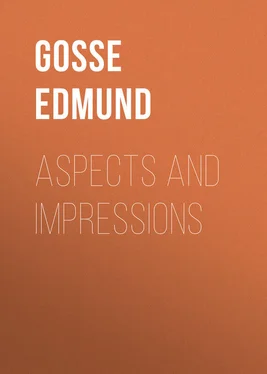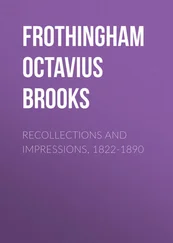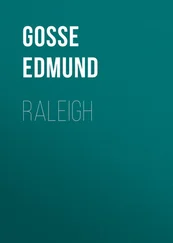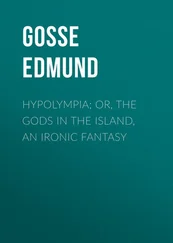Edmund Gosse - Aspects and Impressions
Здесь есть возможность читать онлайн «Edmund Gosse - Aspects and Impressions» — ознакомительный отрывок электронной книги совершенно бесплатно, а после прочтения отрывка купить полную версию. В некоторых случаях можно слушать аудио, скачать через торрент в формате fb2 и присутствует краткое содержание. Жанр: Критика, foreign_antique, foreign_prose, на английском языке. Описание произведения, (предисловие) а так же отзывы посетителей доступны на портале библиотеки ЛибКат.
- Название:Aspects and Impressions
- Автор:
- Жанр:
- Год:неизвестен
- ISBN:нет данных
- Рейтинг книги:4 / 5. Голосов: 1
-
Избранное:Добавить в избранное
- Отзывы:
-
Ваша оценка:
- 80
- 1
- 2
- 3
- 4
- 5
Aspects and Impressions: краткое содержание, описание и аннотация
Предлагаем к чтению аннотацию, описание, краткое содержание или предисловие (зависит от того, что написал сам автор книги «Aspects and Impressions»). Если вы не нашли необходимую информацию о книге — напишите в комментариях, мы постараемся отыскать её.
Aspects and Impressions — читать онлайн ознакомительный отрывок
Ниже представлен текст книги, разбитый по страницам. Система сохранения места последней прочитанной страницы, позволяет с удобством читать онлайн бесплатно книгу «Aspects and Impressions», без необходимости каждый раз заново искать на чём Вы остановились. Поставьте закладку, и сможете в любой момент перейти на страницу, на которой закончили чтение.
Интервал:
Закладка:
By the close of 1898 he had got rid of the flat in De Vere Gardens, which had become a mere burden to him, and had taken what he called an "invaluable south-looking, Carlton-Gardens-sweeping bedroom" at the Reform Club in Pall Mall, which served his brief and sudden pilgrimages to town for many seasons. Lamb House, in the course of this year, became his almost exclusive residence, and it is to be noted that at the same time a remarkable change came over the nature of his correspondence. He had been a meticulous but not very inspired letter-writer in early youth; his capacity for epistolary composition and his appetite for it had developed remarkably in the middle years (1882-1890). During the hectic period of his theatrical ambition it had dwindled again. But when he settled finally at Rye, spreading himself in luxurious contentment within the protection of his old brick garden-wall, the pink and purple surface of which stood in his fancy as a sort of bodyguard of security passed down for that particular purpose through mild ages of restfulness, as soon as he sat, with his household gods about him, in the almost cotton-woolly hush of Lamb House, he began to blossom out into a correspondent of a new and splendid class. The finest and most characteristic letters of Henry James start with his fifty-fifth year, and they continue to expand in volume, in richness and in self-revelation almost to the close of his life. On this subject Mr. Percy Lubbock, than whom no one has known better the idiosyncrasies of Henry James, has described his method of correspondence in a passage which could not be bettered:
The rich apologies for silence and backwardness that preface so many of his letters must be interpreted in the light, partly indeed of his natural luxuriance of phraseology, but much more of his generous conception of the humblest correspondent's claim on him for response. He could not answer a brief note of friendliness but with pages of abounding eloquence. He never dealt in the mere small change of intercourse; the postcard and the half-sheet did not exist for him; a few lines of enquiry would bring from him a bulging packet of manuscript, overwhelming in its disproportion. No wonder that with this standard of the meaning of a letter he often groaned under his postal burden. He discharged himself of it, in general, very late at night; the morning's work left him too much exhausted for more composition until then. At midnight he would sit down to his letter-writing and cover sheet after sheet, sometimes for hours, with his dashing and not very readable script. Occasionally he would give up a day to the working off of arrears by dictation, seldom omitting to excuse himself to each correspondent in turn for the infliction of the "fierce legibility" of type.
This amplitude of correspondence was the outcome of an affectionate solicitude for his friends, which led him in another direction, namely, in that of exercising a hospitality towards them for which he had never found an opportunity before. He did not, however, choose to collect anything which might remotely be called "a party"; what he really preferred was the presence of a single friend at a time, of a companion who would look after himself in the morning, and be prepared for a stroll with his host in the afternoon, and for a banquet of untrammelled conversation under the lamp or on the expanse of the lawn after the comfortable descent of nightfall.
His practice in regard to such a visitor was always to descend to the railway station below the town to welcome the guest, who would instantly recognize his remarkable figure hurrying along the platform. Under the large soft hat would be visible the large pale face, anxiously scanning the carriage-windows and breaking into smiles of sunshine when the new-comer was discovered. Welcome was signified by both hands waved aloft, lifting the skirts of the customary cloak, like wings. Then, luggage attended to, and the arm of the guest securely seized, as though even now there might be an attempt at escape, a slow ascent on foot would begin up the steep streets, the last and steepest of all leading to a discreet door which admitted directly to the broad hall of Lamb House. Within were, to right and left, the pleasant old rooms, with low windows opening straight into the garden, which was so sheltered and economized as to seem actually spacious. Further to the left was a lofty detached room, full of books and lights, where in summer Henry James usually wrote, secluded from all possible disturbance. The ascent of arrival from the railway grew to be more and more interesting as time went on, and as the novelist became more and more a familiar and respected citizen, it was much interrupted at last by bows from ladies and salaams from shop-keepers; many little boys and girls, the latter having often curtsied, had to be greeted and sometimes patted on the head. These social movements used to inspire in me the inquiry: "Well, how soon are you to be the Mayor-Elect of Rye?" a pleasantry which was always well received. So obviously did Henry James, in the process of years, become the leading inhabitant that it grew to seem no impossibility. Stranger things had happened! No civic authority would have been more conscientious and few less efficient.
His outward appearance developed in accordance with his moral and intellectual expansion. I have said that in early life Henry James was not "impressive"; as time went on his appearance became, on the contrary, excessively noticeable and arresting. He removed the beard which had long disguised his face, and so revealed the strong lines of mouth and chin, which responded to the majesty of the skull. In the breadth and smoothness of the head – Henry James became almost wholly bald early in life – there was at length something sacerdotal. As time went on, he grew less and less Anglo-Saxon in appearance and more Latin. I remember once seeing a Canon preaching in the Cathedral of Toulouse who was the picture of Henry James in his unction, his gravity, and his vehemence. Sometimes there could be noted – what Henry would have hated to think existing – a theatrical look which struck the eye, as though he might be some retired jeune premier of the Français, jeune no longer; and often the prelatical expression faded into a fleeting likeness to one or other celebrated Frenchman of letters (never to any Englishman or American), somewhat of Lacordaire in the intolerable scrutiny of the eyes, somewhat of Sainte-Beuve, too, in all except the mouth, which, though mobile and elastic, gave the impression in rest of being small. All these comparisons and suggestions, however, must be taken as the barest hints, intended to mark the tendency of Henry James's radically powerful and unique outer appearance. The beautiful modelling of the brows, waxing and waning under the stress of excitement, is a point which singularly dwells in the memory.
It is very difficult to give an impression of his manner, which was complex in the extreme, now restrained with a deep reserve, now suddenly expanding, so as to leave the auditor breathless, into a flood of exuberance. He had the habit of keeping his friends apart from one another; his intimacies were contained in many watertight compartments. He disliked to think that he was the subject of an interchange of impressions, and though he who discussed everybody and everything with the most penetrating and analysing curiosity must have known perfectly well that he also, in his turn, was the theme of endless discussion, he liked to ignore it and to feign to be a bodiless spectator. Accordingly, he was not apt to pay for the revelations, confidences, guesses and what not which he so eagerly demanded and enjoyed by any coin of a similar species. He begged the human race to plunge into experiences, but he proposed to take no plunge himself, or at least to have no audience when he plunged.
Читать дальшеИнтервал:
Закладка:
Похожие книги на «Aspects and Impressions»
Представляем Вашему вниманию похожие книги на «Aspects and Impressions» списком для выбора. Мы отобрали схожую по названию и смыслу литературу в надежде предоставить читателям больше вариантов отыскать новые, интересные, ещё непрочитанные произведения.
Обсуждение, отзывы о книге «Aspects and Impressions» и просто собственные мнения читателей. Оставьте ваши комментарии, напишите, что Вы думаете о произведении, его смысле или главных героях. Укажите что конкретно понравилось, а что нет, и почему Вы так считаете.












